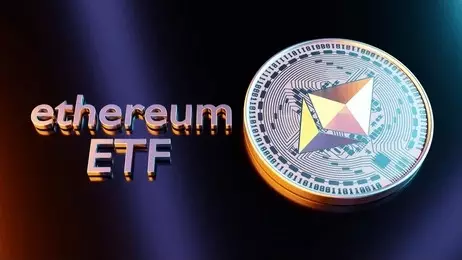The Securities and Exchange Commission (SEC) is considering a similar approach to approving spot Ethereum exchange-traded funds (ETFs) as it did for Bitcoin ETFs. Analysts at Standard Chartered Bank predict that the SEC will grant approval for spot Ethereum ETFs on May 23, which is comparable to January 10, the date Bitcoin ETFs were approved. This article explores the factors supporting this expectation and the potential roadmap for Ethereum ETFs.
Geoffrey Kendrick, head of forex and digital asset research at Standard Chartered Bank, states that the bank expects spot Ethereum ETFs toreceive approval on May 23. He believes that if Ethereum follows a similar trajectory to Bitcoin leading up to ETF approval, it could reach a trading price as high as $4,000 by that date. Kendrick further justifies the approval based on the SEC’s classification of ether as a non-security, as evident from its legal actions against crypto companies. The fact that Ethereum is listed as a regulated futures contract on the Chicago Mercantile Exchange (CME) also strengthens the case for approval.
The Potential Roadmap for Ethereum ETFs
Scott Johnsson, a financial lawyer, provides insights into the potential roadmap for Ethereum ETFs. While long-term approval is highly likely, Johnsson believes there might be short-term delays due to ongoing regulatory actions involving Coinbase and Binance securities exchanges. Drawing from the process followed for Bitcoin, Johnsson explains that it took seven years, multiple steps, and disapprovals to gain approval. However, he also points out that the timeline for Ethereum is compressing, as applications are open for both futures ETFs and spot ETFs. Johnsson suggests that certain prerequisites for spot approval, such as Step 3 which necessitates the SEC to issue a formal 19b-4 approval for the futures ETF, might no longer be necessary.
Johnsson highlights two key factors to understand the SEC’s current approach to future approvals, specifically related to Ethereum. Firstly, he discusses the threshold question, drawing from the Grayscale ruling, which focused on correlation analysis. Secondly, Johnsson emphasizes the SEC’s view as bound by the recent BTC approval order, which considers correlation with the CME, a lengthy sample period, intra-day trading data, and consistency throughout the sample period. While the specific sufficiency threshold remains unknown, the correlation analysis for Bitcoin falls within an acceptable range. Based on this, Johnsson suggests that Ethereum is likely to meet the threshold in the near future, paving the way for approval.
Once the required level of correlation is achieved, Johnsson believes that approval for spot Ethereum ETFs is likely to follow shortly after, with May being the expected month of approval. Industry analysts and experts concur that the SEC’s approval of spot Ethereum ETFs is a matter of time, unless significant legal shifts occur.
The SEC is anticipated to grant approval for spot Ethereum ETFs in May. The factors supporting this expectation include the SEC’s classification of ether as a non-security, Ethereum’s listing as a regulated futures contract on the CME, and the potential compression of the approval timeline. While short-term delays may arise from ongoing regulatory actions, the long-term outlook for spot Ethereum ETFs remains positive. As Ethereum’s price continues to climb, reaching $2,370 at the time of writing, the imminent approval of spot ETFs could further drive its growth in the market. However, investors are advised to conduct their own research and consider the inherent risks associated with investing in digital assets.



Leave a Reply